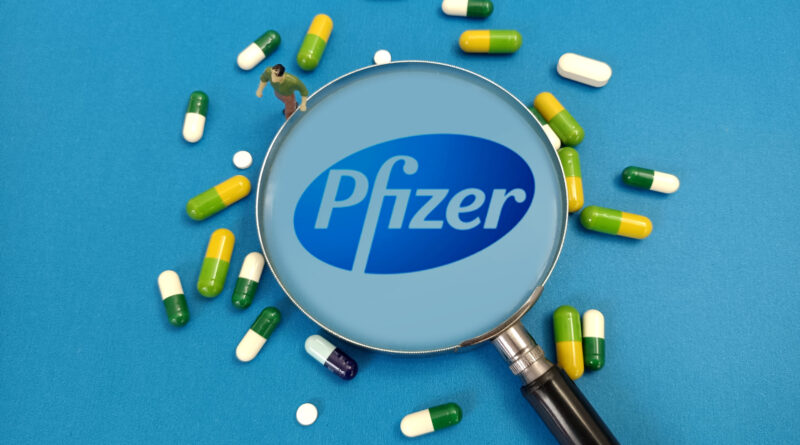Pfizer’s drug for advanced lung cancer shows promising long-term results
Lorbrena has been approved in the US to treat adults with non-small cell lung cancer who have a mutation in a gene called ALK. Only about 5% of all non-small cell lung cancer patients have the mutation, which causes cancer cells to grow and spread abnormally.
But that translates to 72,000 people being diagnosed with that type of lung cancer every year worldwide, according to a release from Pfizer. The cancer is often aggressive and often affects younger people, the company added.
Broadly speaking, non-small cell lung cancer is the most common form of the disease.
Lorbrena is directly approved as a first-line treatment for that type of lung cancer, meaning that patients who take it have not received any other treatment. But Pfizer’s drug is not currently considered a standard – or even the most appropriate and widely used – treatment for this condition.
The company thinks the new five-year drug data will change that.
“In cancer medicine in general, you always want to give the best medicine first. That’s why we believe this data … will lead to [Lorbrena] Becoming “the first treatment for this particular type of lung cancer, Chris Boshoff, Pfizer’s chief oncology officer, told CNBC in an interview.
The new five-year data comes from the same phase three trial that got Lorbrena approved in the US. Pfizer will present the results on Friday at the annual meeting of the American Society of Clinical Oncology in Chicago, the world’s largest cancer research meeting. The findings were republished in the Journal of Clinical Oncology.
About 300 people in the trial received Lorbrena or Pfizer’s older lung cancer drug Xalkori. At five years, 50% of patients in the trial were still receiving Lorbrena compared to 5% of people receiving Xalkori.
In the trial, Lorbrena after five years reduced the risk of cancer development or death by 81% compared to Xalkori.
About 60% of patients treated with Lorbrena were still alive without seeing their cancer progress after that time. That compares to 8% among those who took Xalkori.
Dr. David Spigel, chief scientific officer at the Sarah Cannon Research Institute, called the results “the best we’ve ever seen” during a press conference ahead of the ASCO meeting.
We don’t see anything close to this. Some of the major drugs available… cancer progression.
He noted that there are no head-to-head trials comparing Pfizer’s Lorbrena to competing lung cancer drugs, including one called alectinib and another called brigatinib.
All three are called ALK inhibitors, which are designed to block mutations in the ALK gene that are associated with abnormal growth of cancer cells. Lorbrena is considered a new, third-generation ALK inhibitor, while two competitors are second-generation.
But Spigel added that it was “hard to believe” that Lorbrena would be more effective against those drugs.
Another Pfizer drug Xalkori is also an ALK-inhibitor, but it is no longer used in the US.
Lung cancers with an “ALK-positive” mutation are also known to spread to the brain. About a quarter or more of patients develop brain metastases – when cancer cells spread from their original site to the brain – within the first two years of diagnosis.
Lorbrena reduced the risk of cancer developing in the brain by 94% compared to Pfizer’s older drug. Only four of 114 patients taking Lorbrena developed brain metastases within about 16 months, compared with 39 of 109 taking Xalkori.
Lorbrena is effective in preventing and treating brain metastases because it can cross the membrane called the “bloin-brain barrier” and enter the brain, something that other drugs cannot do.
Spigel called it “another remarkable thing” since the development in the brain “is very bad for patients and something that we are trying very hard to prevent or treat.”
No new safety issues have been reported for Lorbrena. The most common side effects included swelling, weight gain, cognitive and mood changes and high blood cholesterol, among others.
But Spigel called the psychological issues associated with Lorbrena “rare” as they are not seen with its competitors.
In a letter Thursday before the release of the data, Leerink Partners analyst Dr. Andrew Berens says he believes Lorbrena’s intravenous side effects are part of why it’s often used as a second-line treatment rather than a first-line treatment for this advanced form of lung cancer. . Those cognitive and emotional changes result in a “lower quality of life for the patient,” he said.
But Pfizer’s Boshoff said that once doctors use Lorbrena for the first time, they are comfortable managing any side effects associated with the drug.
He noted that teaching doctors how to manage side effects will be an important part of Lorbrena’s “rehabilitation” after the release of new data.
#Pfizers #drug #advanced #lung #cancer #shows #promising #longterm #results
